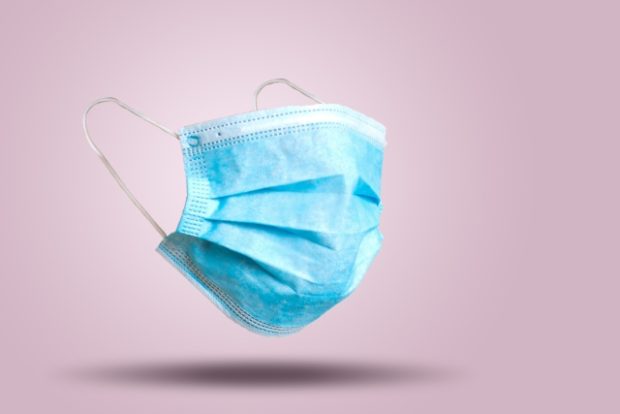Can surgical masks be reused?

Methods to purify single-use masks include exposing them to high temperatures or ultraviolet radiation. Image: Istock.com/ Sinenkiy via AFP Relaxnews
Health authorities say the most widespread anti-COVID weapon — surgical masks — must be thrown away after a single use, but environmental concerns are pushing some scientists to question this recommendation.
As the coronavirus continues to spread, masks have in many places become mandatory on public transport, in shops and at work.
But the cost has become an issue, as has the fact so many disposable plastic masks wind up in waterways and the oceans.
One alternative is reusable cloth masks, but many people prefer single-use surgical masks because they are lighter and individually cheaper.
“Medical masks are for single use only,” the World Health Organization has said. “Discard the mask immediately, preferably into a closed bin.”
But faced with shortages during the first wave of the COVID-19 pandemic in March and April, the WHO allowed in a June report for “exceptional procedures” to disinfect throw-away masks for reuse.
The United States Food and Drug Administration (FDA) recommends — in emergency circumstances — hydrogen peroxide vapor to decontaminate the N95 masks worn by healthcare workers.
Other methods to purify single-use masks include exposing them to high temperatures or ultraviolet radiation.
But these methods are inconvenient for people at home, said French microbiologist and member of Adios Corona, Denis Corpet.
Seven-day method
Adios Corona — a group of scientists who provide information on COVID-19 to the public — recommends “placing the mask in a paper envelope with the date clearly marked, and leaving it for seven days.”
“Several scientific studies show that viruses are almost all dead on a mask after seven days,” said Corpet.
A study published in The Lancet found that only 0.1% of the virus on the outside surface of the mask was still detectable after one week.
This method, however, is not appropriate for healthcare workers exposed to high viral loads.
Peter Tsai, the inventor of N95 electrostatically charged filter material, agrees with the seven-day method.
But he suggests leaving used masks out in the open for a week before reuse, a cycle he says can be repeated five to 10 times.
Disposable masks can also be placed in the oven, Tsai told Agence France-Presse, ideally at a temperature between 70 and 75 degrees Celsius (158 and 167 degrees Fahrenheit) — not too high to avoid burning the plastic, but sufficiently hot to kill the virus.
Washing masks in a washing machine, however, is not a good idea.
“Washing without detergent may not wash away the virus,” Tsai said. “And washing with detergent will erase the (electrostatic) charges,” diminishing its efficiency.
French consumers’ rights group UFC-Que Choisir washed surgical masks at 60 degrees Celsius, put them in the dryer, and ironed them. After 10 such cycles, the masks still filtered at least 90% of 3-micron particles.
“Apart from a slight felting, the washed surgical masks were at least as efficient as the best cloth masks,” UFC-Que Choisir reported last week.
‘Like underwear’
Researcher Philippe Vroman from French engineering university Ensait came to the same conclusion.
After five washes, “there are practically no differences (of filtration) for particles of 3 microns,” Vroman said, on the basis of preliminary results not yet published in a peer-reviewed scientific journal.
“And I would rather we swap masks every four hours and wash them, rather than wearing them several days in a row as some people do. It’s a bit like underwear,” he said.
But not all scientists agree.
“Washing the mask at home could potentially cause a secondary contamination and spread the virus if washing is not set appropriately,” said Kaiming Ye, head of the biomedical engineering department at New York’s Binghamton University.
Until more research is published on the matter, official advice from health authorities is not set to change.
“Single-use surgical masks must be thrown into the bin after use,” said France’s health authority DGS, but noted that more studies were underway. RGA
RELATED STORIES:
Barista gets over $74,000 in tips after woman without face mask shames him for not serving her
‘It shouldn’t be a debate’: Jennifer Aniston urges fans to wear face masks amid COVID-19
For more news about the novel coronavirus click here.
What you need to know about Coronavirus.
For more information on COVID-19, call the DOH Hotline: (02) 86517800 local 1149/1150.
The Inquirer Foundation supports our healthcare frontliners and is still accepting cash donations to be deposited at Banco de Oro (BDO) current account #007960018860 or donate through PayMaya using this link.